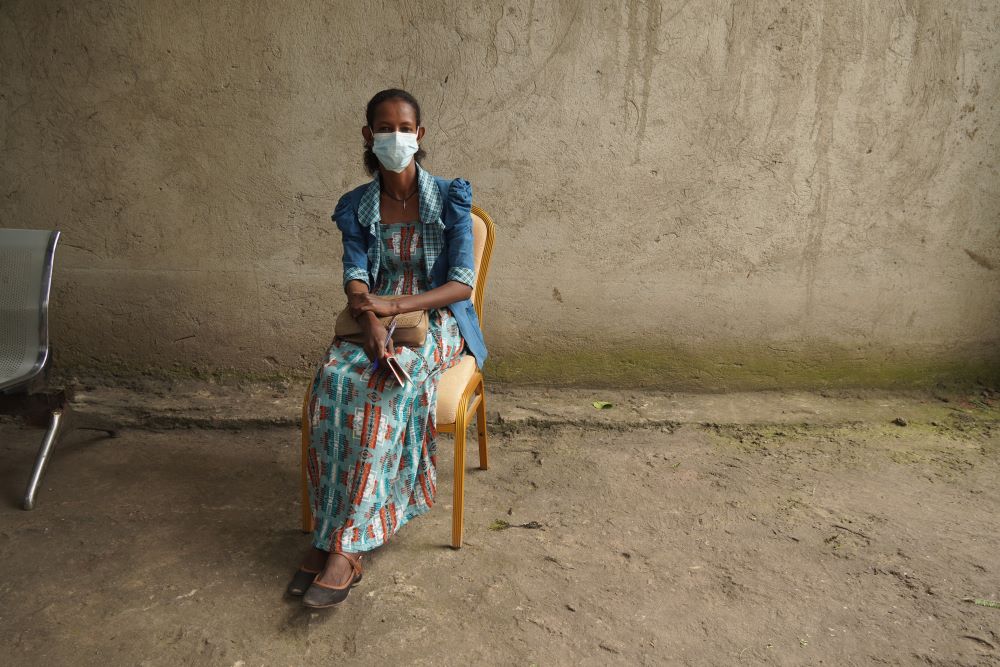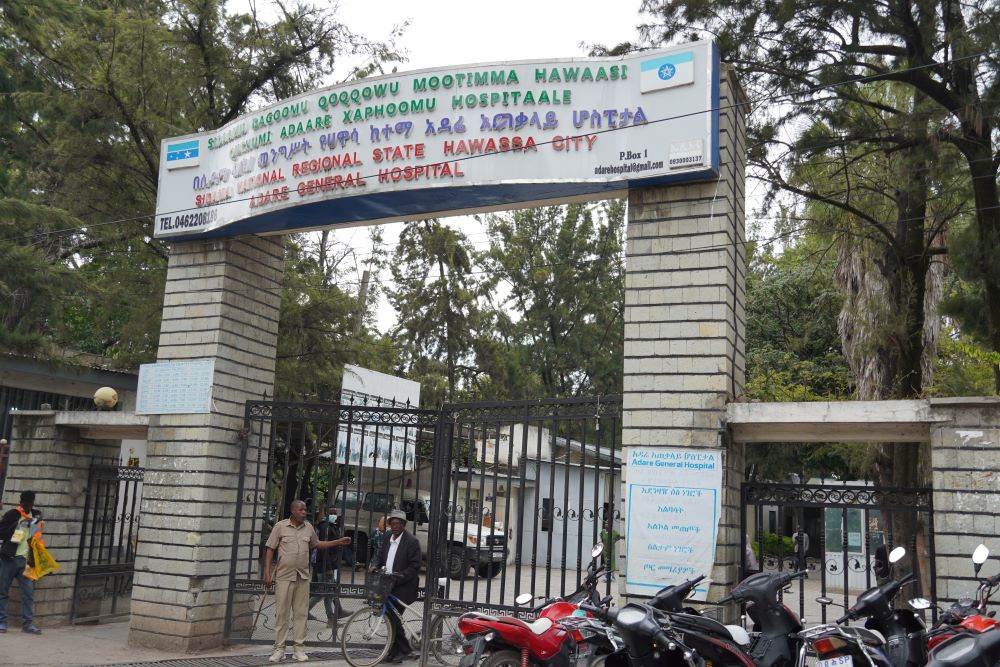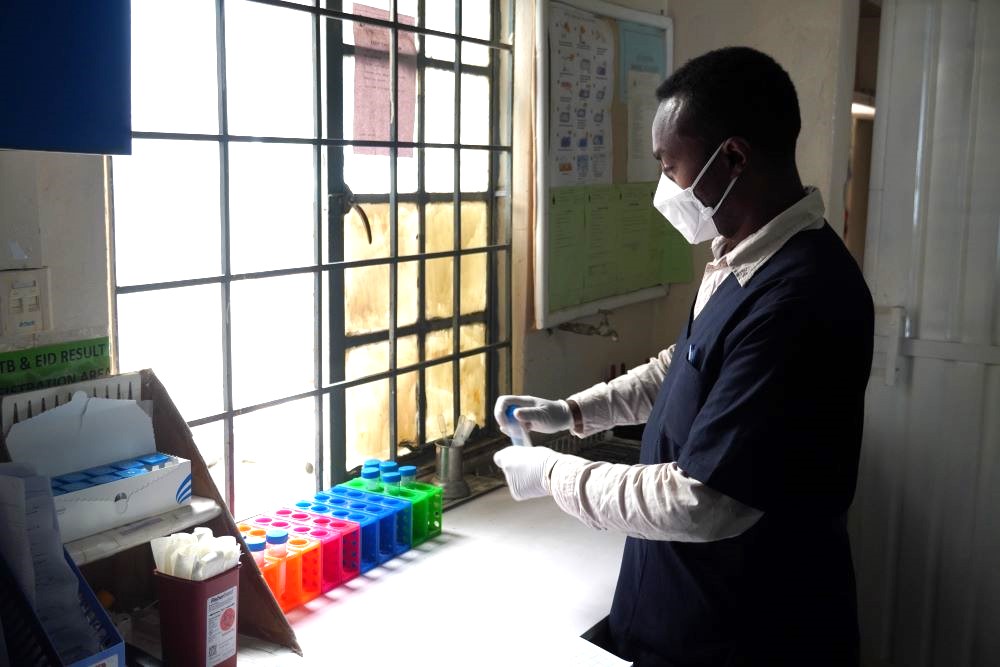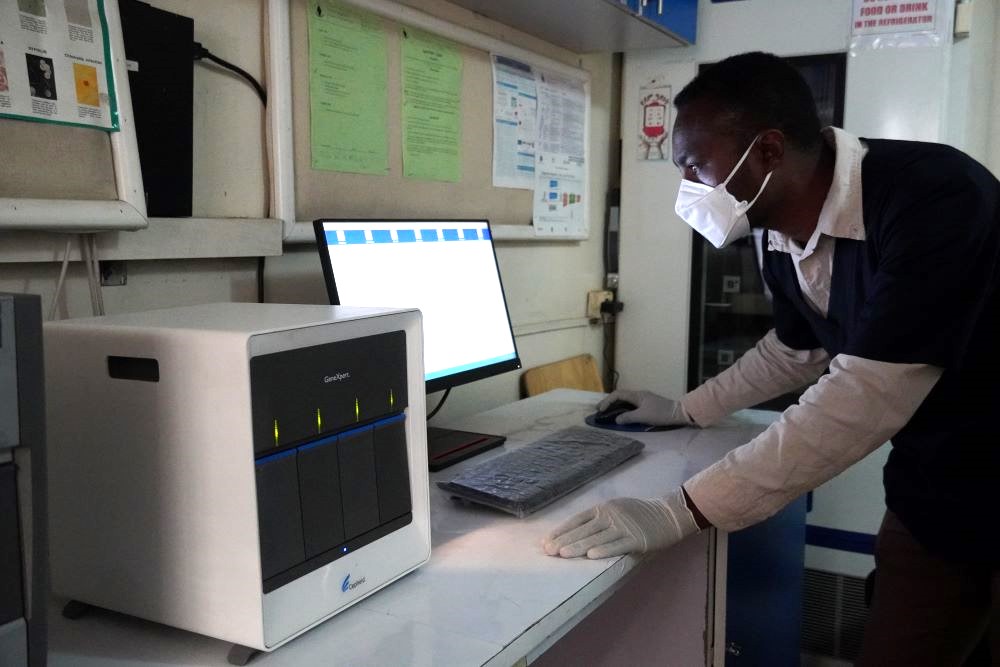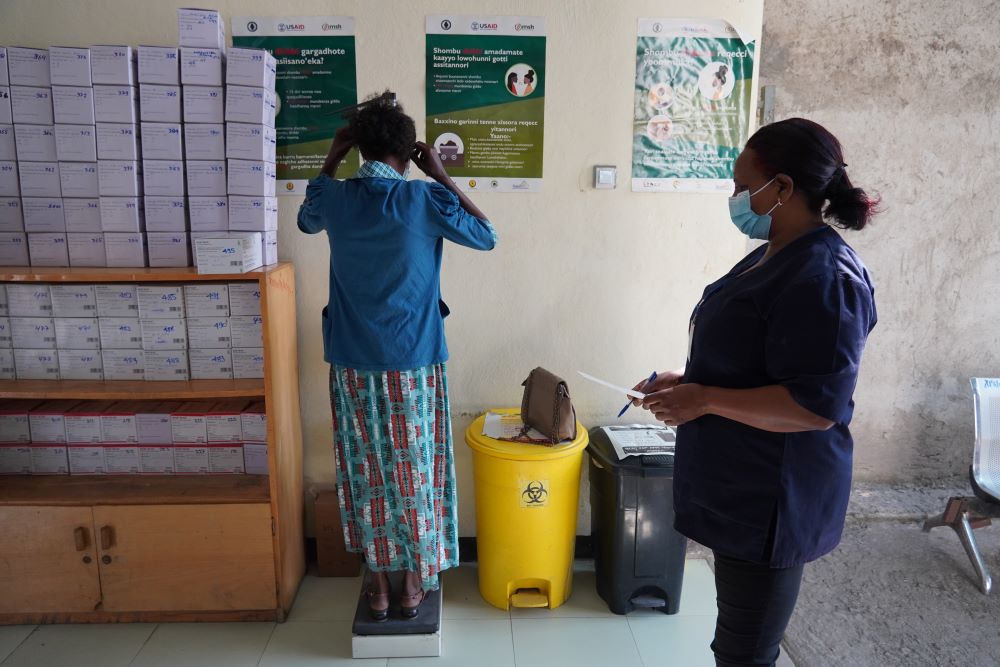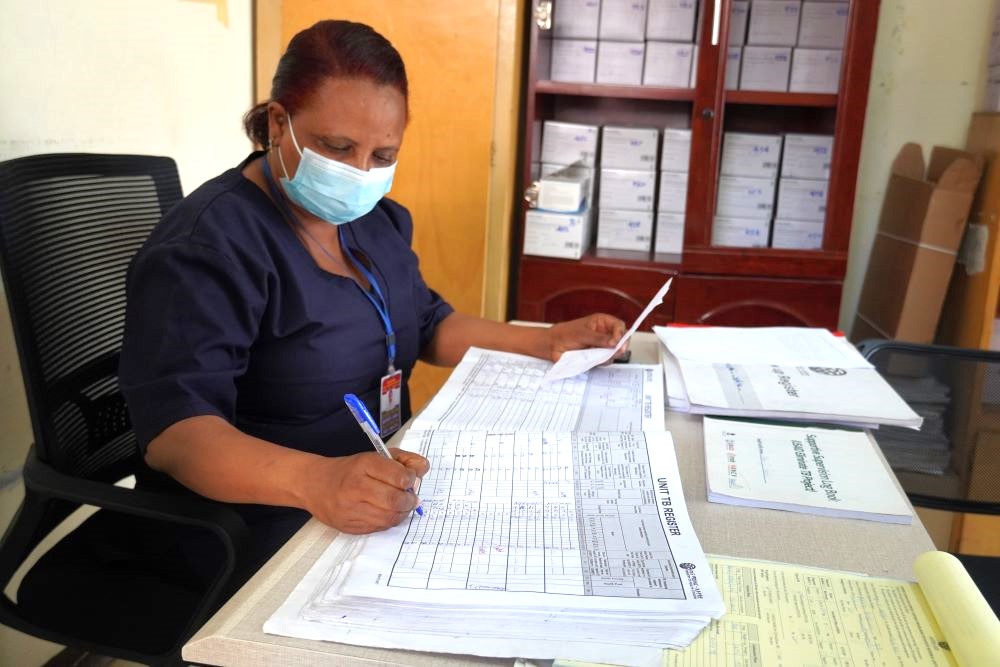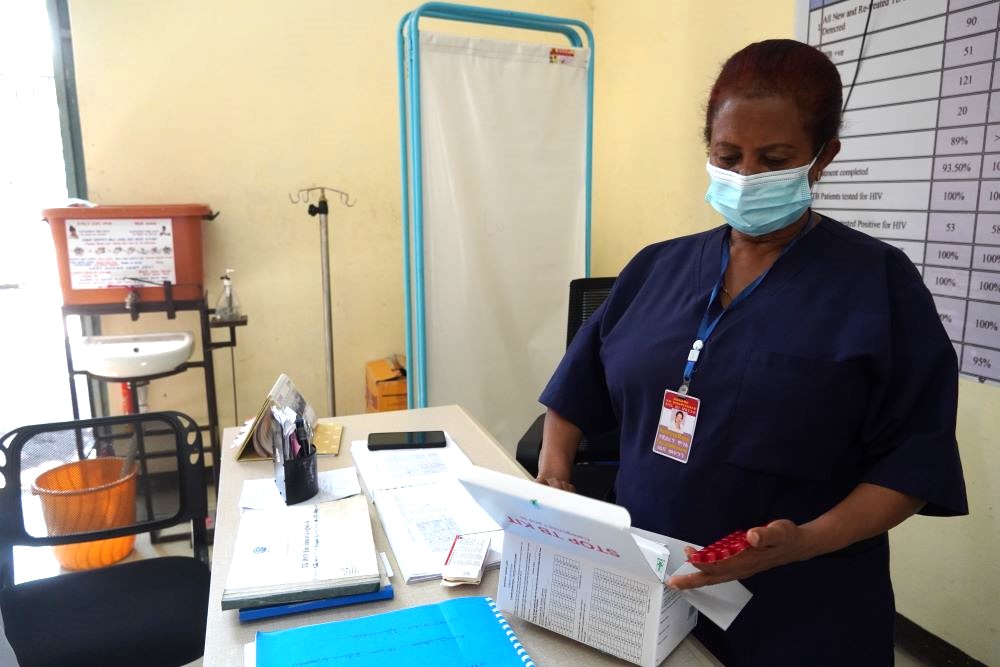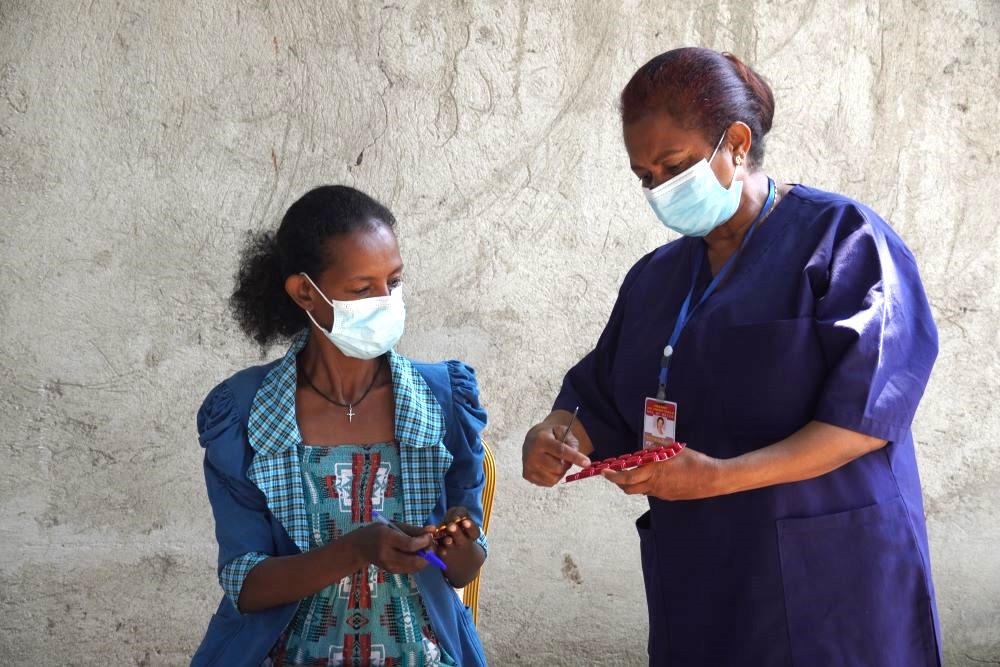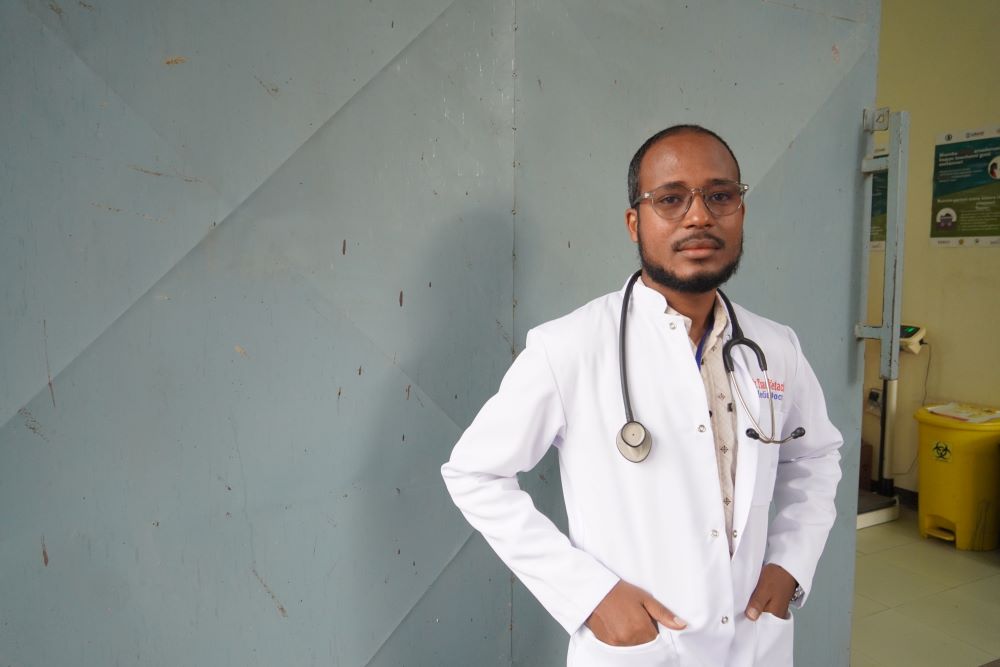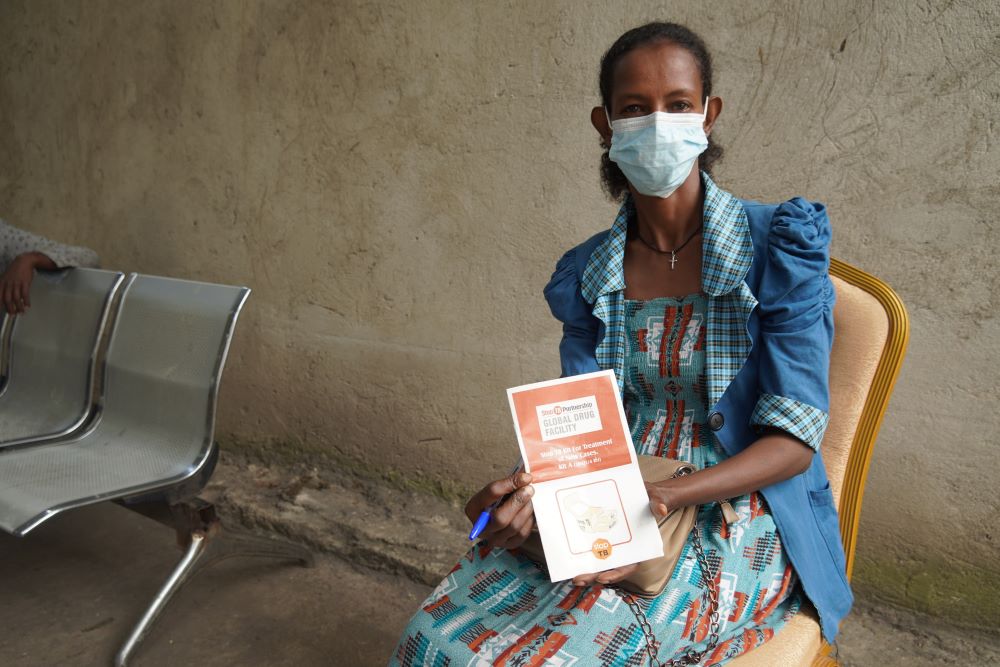Eliminating TB in Ethiopia: One Woman’s Journey Back to Health at Adare General Hospital
By Jennifer Gardella
Eliminating TB in Ethiopia: One Woman’s Journey Back to Health at Adare General Hospital
By Jennifer Gardella
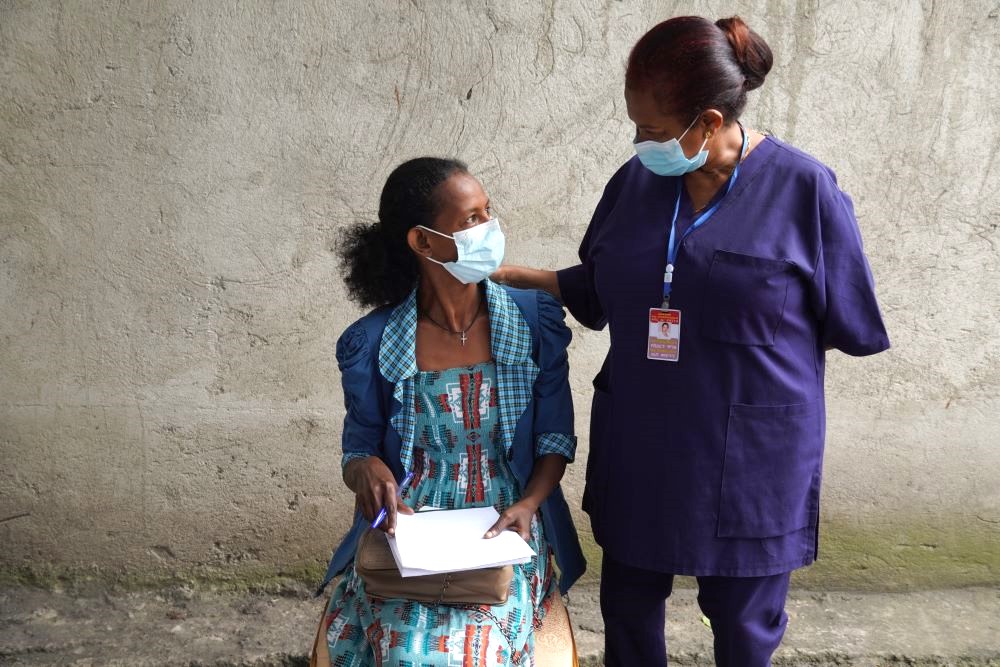
On a warm afternoon in Hawassa—the bustling, beautiful lakeside capital of Ethiopia’s Sidama Region—a young woman arrives at Adare General Hospital’s TB clinic. Wearing a surgical mask, she sits alone, keeping her distance from other patients and staff until her name is called.
It is not Danchile’s* first visit to the hospital—far from it. Her lengthy odyssey began months before when she first noticed some concerning symptoms. “I started feeling very fatigued and I was coughing a lot. I completely lost my appetite and began to lose weight very quickly. It was clear that something was wrong,” she recalls. “One day, I collapsed at home. I was unconscious, and my family brought me straight here.”
Due to her fragile condition, Danchile was admitted to the hospital for three days to receive inpatient care while her doctors ran tests to pinpoint the cause of her sickness. Her symptoms suggested that TB was a possibility, so her doctor collected a sputum sample and took it down to the laboratory for GeneXpert testing.
By distributing USAID-procured GeneXpert machines and training laboratory technicians on their use, the USAID Eliminate TB Project, led by MSH in Ethiopia, helps facilities like Adare General Hospital boost their diagnostic capacity. Through molecular testing, GeneXpert machines can confirm a TB diagnosis in a matter of hours rather than the weeks needed to process microscopic tests, thereby drastically reducing the time it takes to get patients like Danchile started on treatment.
“The USAID Eliminate TB Project has delivered not only specialized equipment like more advanced GeneXpert machines and their corresponding cartridges, but also the power backup device to minimize the effects of power outages on the tests—a frequent challenge here in Hawassa,” explains Dr. Tsadiku Getachew Amaye, the hospital’s medical director. “The project also provides us with ongoing technical support and capacity building to keep our skills fresh.”
Through GeneXpert testing, Danchile’s preliminary diagnosis was confirmed: she had TB. Her doctors started her on treatment right away and, once she regained some strength, she was discharged from the hospital to continue her medication regimen on an outpatient basis.
“These days, I come here once a week to get my medicines for that week,” Danchile says. “The nurses are so helpful and kind. Every time I come, they weigh me and talk to me about my symptoms and how I am feeling.”
First, the nurse on duty logs Danchile’s weight and other information in the patient registry.
Next, the nurse retrieves Danchile’s personal “Stop TB Patient Kit,” which contains all the medicines she needs to complete her treatment course. “The nurses help me keep track of my medicines. They give me my doses for the week and answer any questions I have about my treatment and my health,” explains Danchile. “Even when I am home in between visits, they always call to check on me to see how I am doing.”
In addition to her treatment, Danchile receives counseling and advice on how to take care of herself and others as she recovers from TB. “I’ve learned that eating nutritious foods is important for me to get better. I’ve also learned about how to keep others safe, since TB is so infectious. I keep my distance when I can and wear a mask when I cannot. I also encourage my family to bring their children here for preventive treatment, so the little ones do not fall sick.”
Luckily for Danchile, the TB team at Adare General Hospital is well equipped to provide her with high-quality health services, thanks in part to the technical assistance received from the USAID Eliminate TB Project. “We are living in a country where there is a high TB burden, and Sidama is one of the country’s highest-burden regions. At this hospital alone, the burden is very high,” says Dr. Tsadiku Getachew Amaye. “That is why the partnership with the USAID Eliminate TB project is crucial; its impact on the quality of care we can provide to our patients and to our community cannot be overstated.”
Countless patients like Danchile are receiving early and accurate TB diagnoses, accessing treatment, and receiving quality care from their health providers thanks to the USAID Eliminate TB Project, which directly partners with more than 170 hospitals—including Adare General Hospital—across seven regions to bolster TB services. The project also provides direct support to nearly 1,850 health centers and around 8,650 health posts.
As for Danchile, she is very optimistic about her future, thanks to the quality care she has received at Adare General Hospital. “I’m feeling much, much stronger now. I am hopeful that once I finish my treatment, I will stay well. I am so grateful for this chance at being healthy again.”
*Name has been changed to protect privacy.
